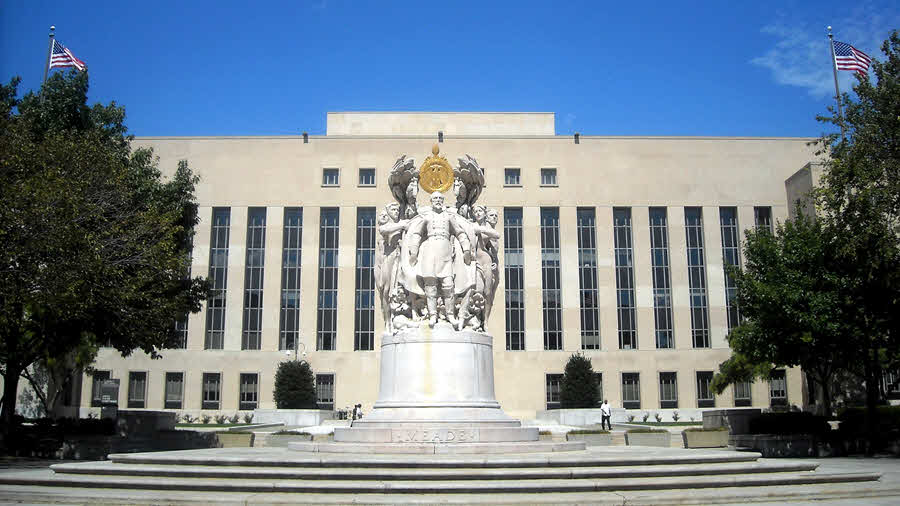FCC Defends Internet Dereg as Justifiable Light-Touch Remake

The smarter way to stay on top of broadcasting and cable industry. Sign up below
You are now subscribed
Your newsletter sign-up was successful
The FCC told a federal appeals court Thursday (Oct. 11) that its order deregulating internet access simply restored "the longstanding regulatory classification of broadband Internet access service as an “information service” under Title I of the Communications Act" and returned to a "light touch" regulatory approach.
That came in the FCC's initial brief in Mozilla V. FCC, the challenge by Mozilla and many others to the FCC's Dec. 14, 2017, Restoring Internet Freedom order, which eliminated the rules against blocking, throttling or paid prioritization and the general conduct rule to get at conduct not covered by the first three rules (the FCC argued it lacked the legal authority to impose the general conduct rule).
Related: GOP-Led FCC KO's Title II
The brief was filed Thursday in the U.S. Court of Appeals for the D.C. Circuit.
As to reclassifying internet access as a Title I service, the FCC told the court that it had reasoned, consistent with Supreme Court precedent in the Brand X decision, that "the 'information service' classification aligns with broadband’s enhanced capabilities and functionalities and with consumer perceptions of Internet access service as a single, integrated offering."
The FCC argues that Mozilla et al. are simply trying to relitigate that Supreme Court decision.
The commission also argued that, if legal analysis alone did not suffice, which it argues it does, the FCC provided "robust" public policy rationales, including how Title II had hampered innovation, investment and deployment.
The smarter way to stay on top of broadcasting and cable industry. Sign up below
"The Commission accordingly adopted a light-touch approach that relies on transparency, market forces, and enforcement of existing antitrust and consumer protection laws to protect against harmful conduct," it told the court, which it said would spur the innovation and investment lacking under Title II common carrier regs.
The commission told the court that the Restoring Internet Freedom order's transparency rule, combined with market forces and preexisting antitrust and consumer protection laws--enforced by the Federal Trade Commission--"provide substantial protection against any harmful conduct."
The FCC's deregulatory order included preempting any state or local attempts to restore the rules it had just eliminated. That was one of the things Mozilla et al. challenged. California has done it more directly by passing a law that restores the rules--the Department of Justice has sued to block it. The FCC brief spends a couple of dozen pages laying out its care for preemption, but it boiled down to: internet access is an interstate service and "federal law is preeminent with respect to interstate communications."
Related: Court Boosts FCC Case State Preemptions
The FCC said that those legal and policy analyses easily meet its responsibility--under the Administrative Procedures Act o9APA)--of explaining why it repealed the 2015 Open Internet order and restored the previous approach to classification. Under the APA, an agency's decision making can't be arbitrary or capricious.
For that reason, said the FCC, the petitions for review should be denied.
Joining Mozilla in suing the FCC were Vimeo, Inc.; Public Knowledge; Open Technology Institute; the States of New York, California, Connecticut, Delaware, Hawaii, Illinois, Iowa, Maine, Maryland, Minnesota, Mississippi, New Jersey, New Mexico, North Carolina, Oregon, Rhode Island, Vermont, and Washington; the Commonwealths of Kentucky, Massachusetts, Pennsylvania, and Virginia; the District of Columbia; the National Hispanic Media Coalition; NTCH, Inc.; the Benton Foundation; Free Press; the Coalition for Internet Openness; Etsy, Inc.: the Ad Hoc Telecom Users Committee; the Center for Democracy and Technology; the County of Santa Clara and the Santa Clara County Central Fire Protection District; the California Public Utilities Commission; and INCOMPAS.
Intervenors in support of the FCC included CTIA—The Wireless Association; NCTA—The Internet & Television Association; USTelecom—The Broadband Association; the American Cable Association; the Wireless Internet Service Providers Association.
Contributing editor John Eggerton has been an editor and/or writer on media regulation, legislation and policy for over four decades, including covering the FCC, FTC, Congress, the major media trade associations, and the federal courts. In addition to Multichannel News and Broadcasting + Cable, his work has appeared in Radio World, TV Technology, TV Fax, This Week in Consumer Electronics, Variety and the Encyclopedia Britannica.

